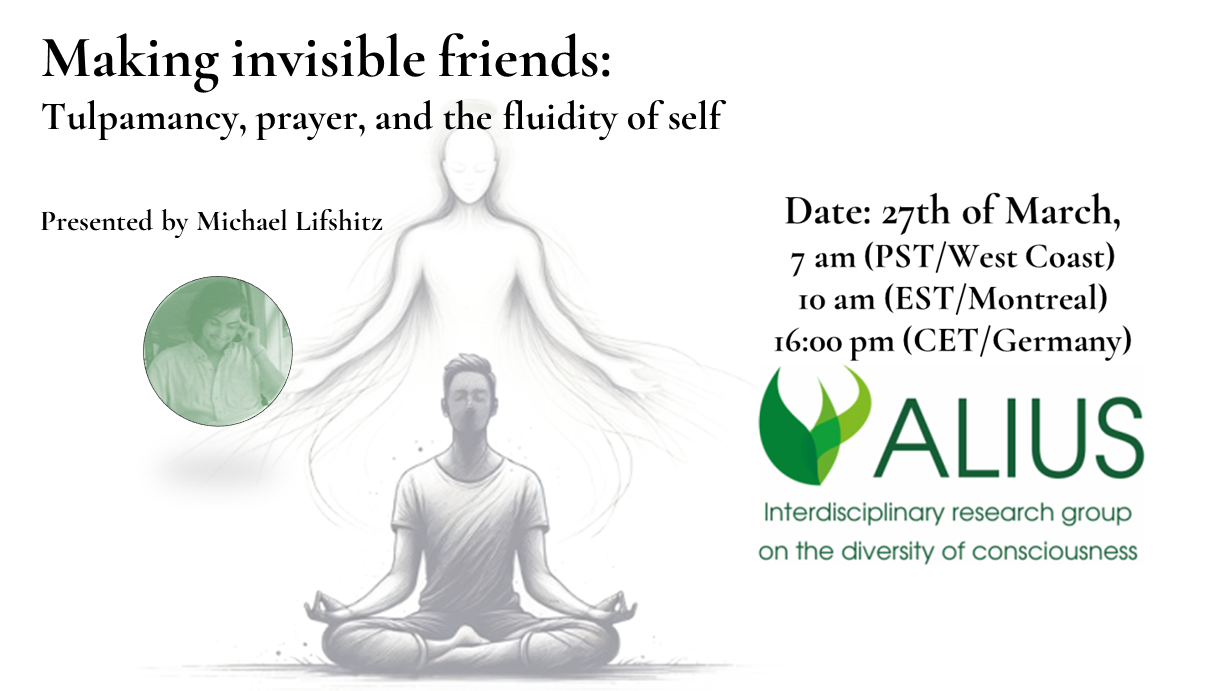|
Abstract:
Tulpamancy is the practice of creating invisible companions called “tulpas”, or thought-forms. Tulpas are understood to share the mind and body of the person who created them, but to have their own autonomous free will and agency. They are typically experienced by the humans who create them (the tulpamancers) as close friends and confidants with rich personalities and strong opinions. Originally inspired by the “Illusory Form” practices of Tibetan Dream Yoga, a secular form of tulpamancy has been gaining popularity through online message boards and chat servers. In this talk, I will describe findings from a project that combined phenomenological interviews with functional neuroimaging to examine how the practice of tulpamancy modulates the sense of agency. We also studied whether similar mechanisms may play a role in religious practices—specifically the charismatic Christian practice of speaking in tongues, in which practitioners yield their will to the invisible spirit of God. This research illustrates how imagination-based practices can open new modes of subjectivity and pattern fundamental aspects of human experience, right down to the basic feeling of agency over our innermost thoughts and actions. Michael Lifshitz is an Assistant Professor working in the Division of Social and Transcultural Psychiatry at McGill University and the Jewish General Hospital in Montreal. He did his PhD in Neuroscience at McGill and then a postdoc in Anthropology at Stanford. His work combines phenomenology, neuroscience and ethnography to shed light on the plasticity of consciousness. He studies practices that aim to transform subjective experience—from meditation and hypnosis to placebos, prayer, and psychedelics. He is particularly interested in how these practices can modulate feelings of agency, so that thoughts, actions and sensations can come to feel like they are emerging from a source beyond the self. https://www.mcgill.ca/tcpsych/faculty/michael-lifshitz |

